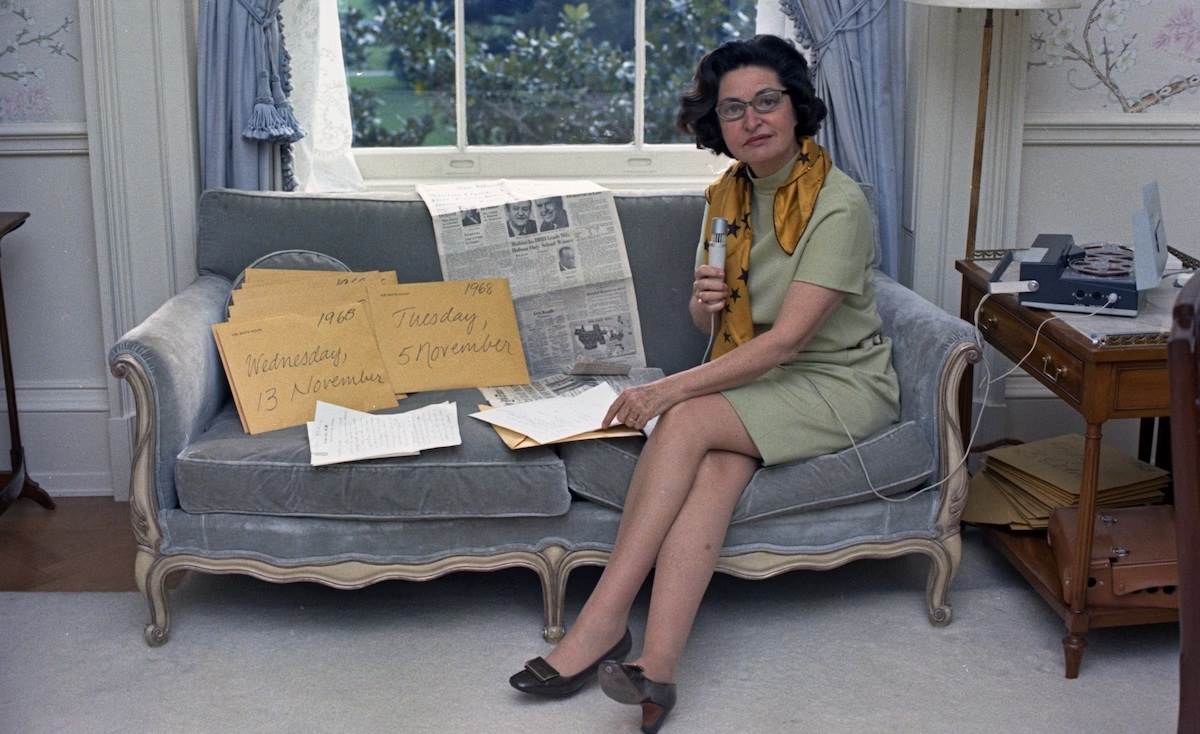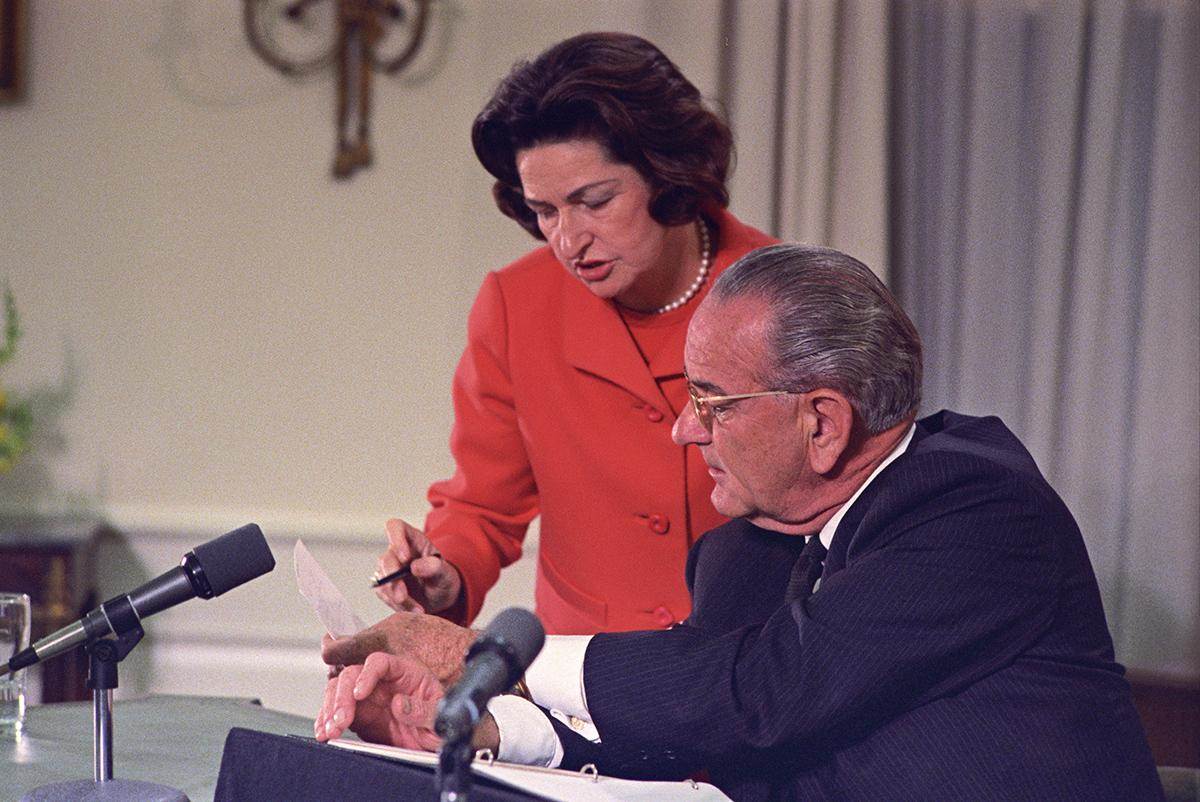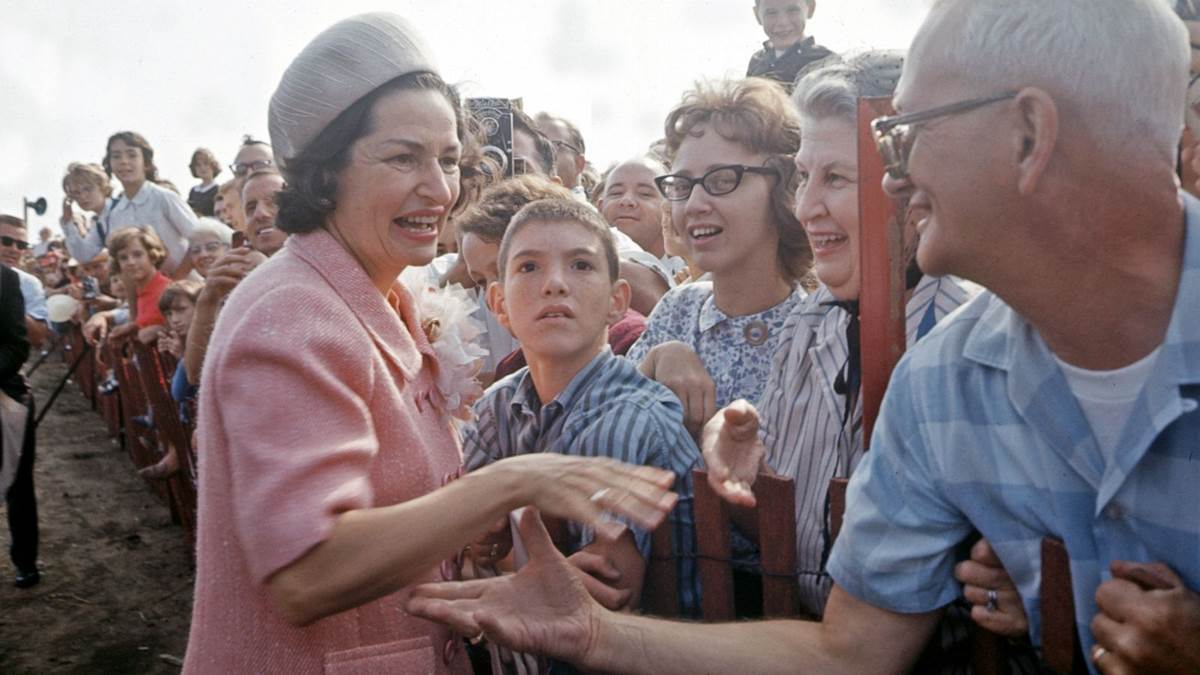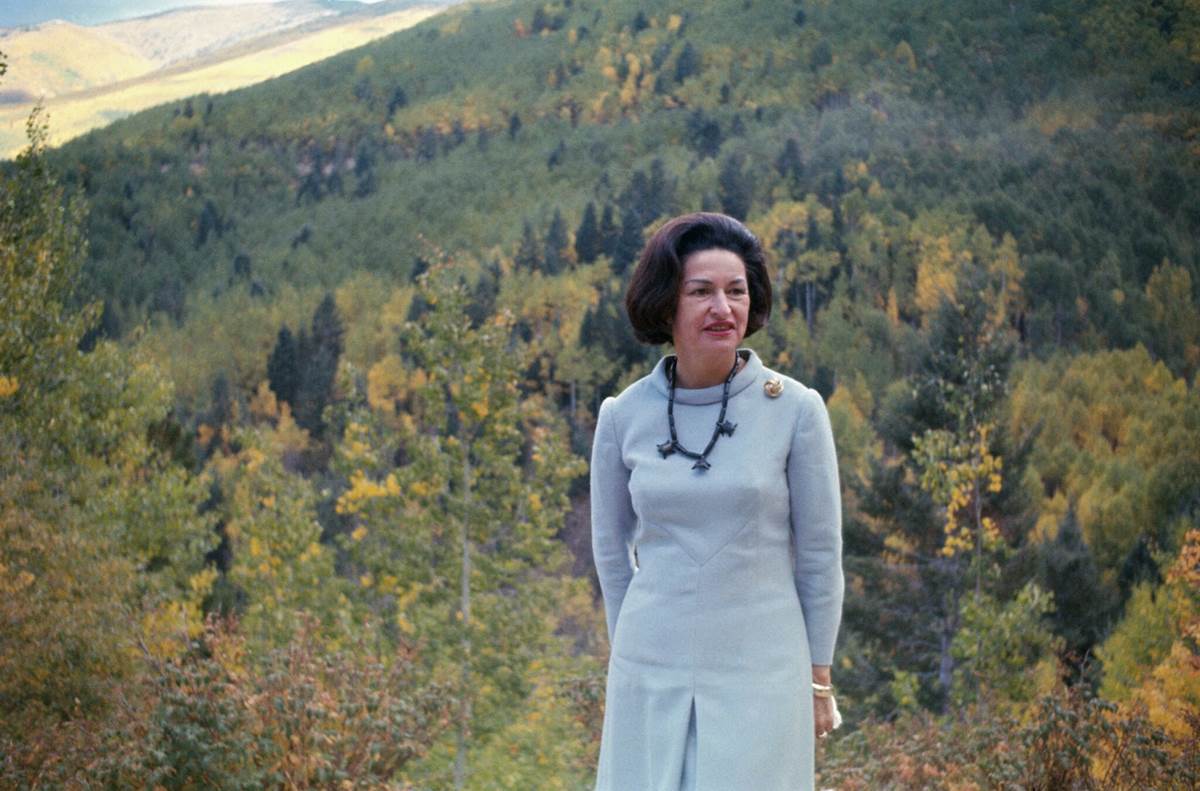Movie Review – “The Lady Bird Diaries” Documents a Tumultuous Time in US History from a Very Unique Perspective
Next week ABC News Studios will debut its new feature documentary The Lady Bird Diaries on Hulu, and Laughing Place was provided with access to an advance screener of the film. Below are my thoughts.
Having recently watched and reviewed National Geographic’s new docuseries JFK: One Day In America, I found it interesting that The Lady Bird Diaries begins with the former First Lady of the United States, Claudia Alta “Lady Bird" Johnson, remembering those moments that changed America on November 22nd, 1963. And beyond altering the course of our country’s history, the assassination of John F. Kennedy also altered Lady Bird’s life, moving her and her husband Lyndon Baines Johnson into the White House for more than five years. We learn early on in this film that three days into her newfound life succeeding the high-profile Jacqueline Kennedy as the First Lady, Mrs. Johnson decided to keep an audio diary, which was made publicly available upon her death in 2007. So this movie, directed by filmmaker Dawn Porter (Trapped) is constructed from those diaries, played over relevant archival footage, photos, and a handful of other assorted other interviews with participants in events from that era.
Personally, I knew the name Lady Bird Johnson and that she was one of the more well-known and active First Ladies, but I wasn’t aware of the ins and outs of her role in the Johnson presidency until this informative documentary. Like the above-mentioned One Day In America, The Lady Bird Diaries is told almost entirely from a first-person perspective, as Mrs. Johnson takes a decidedly engaged role in her husband’s political policies, speeches, and decisions. There’s a great scene early on where we hear Lady Bird critiquing Lyndon’s public-speaking skills, and then at the end of the movie President Barack Obama references having heard the same tape, remarking that “some things never change." Through Lady Bird’s eyes and voice we hear about the Vietnam War, the Civil Rights movement, the assassinations of Martin Luther King Jr. and Robert F. Kennedy, and other tribulations of 1960s America, and she always somehow manages to keep a reasoned, poised stance in her thoughts. When one of Johnson’s top aides is outed for a homosexual dalliance, Lady Bird steadfastly insists on issuing a statement in his support, going against the president’s wishes in that moment.
We also learn about her sympathy for the lower-income families and students, plus the Highway Beautification Act (AKA Lady Bird’s Bill), which aimed to regulate the aesthetics of land alongside federal interstate roadways via control of outdoor advertising and junkyards. She was also tremendously concerned with the improvement of Washington D.C. and other environmental causes, so much so that her influence was key in persuading Johnson’s successor Richard Nixon to create the Environmental Protection Agency. But those are the facts about Lady Bird Johnson; what really makes this documentary compelling is hearing about all of this through her own candid words. One particularly memorable instance involves actress and activist Eartha Kitt, who dared to speak out to the president about the state of the nation during a White House luncheon. Through the audio recordings, we get Lady Bird’s authentic response to this incident, something we likely would not have even been privy to otherwise. Oftentimes figures like the First Lady are sidelined to the footnotes of history, but through these diaries and the documentary they inspired, it becomes clear how much of an impact Lady Bird Johnson had on shaping our nation after a tragedy propelled her family into a life they hadn’t quite prepared for.
The Lady Bird Diaries is currently playing theatrically in a limited run and will make its streaming debut on Hulu this coming Monday, November 13th.
My grade: 4 out of 5 letter grades on presidential speeches






